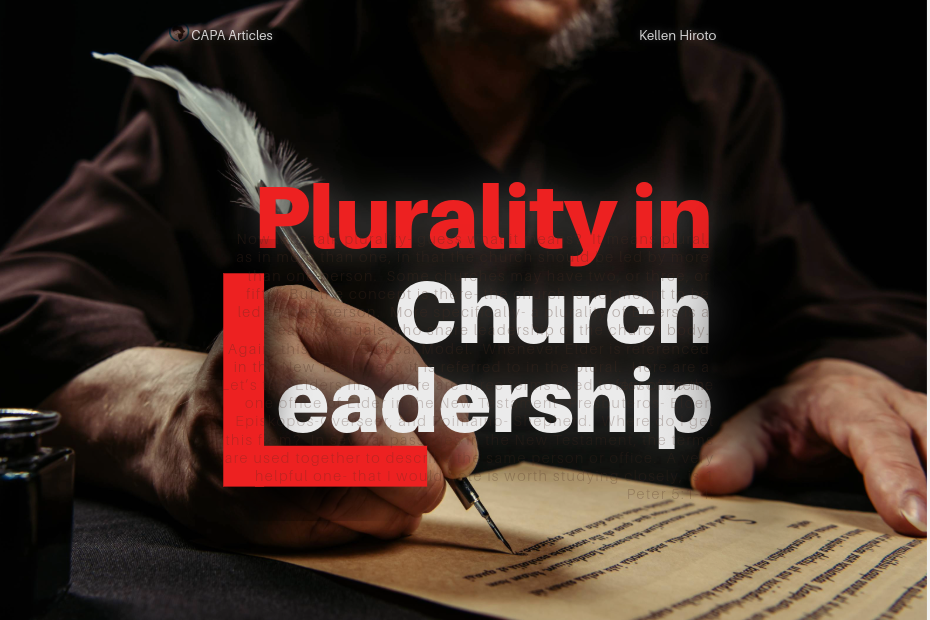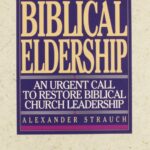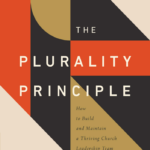
Everyone appreciates a good organogram (at least I do!)- those charts that show the hierarchy of leadership, who reports to who, who’s responsible for what, who has authority at what level. You can have pretty simple models and you can have very complex ones. If you were to look at an organogram of the Executive branch of the government in Malawi- the President at the top, the Cabinet Ministers,
their Deputies, the Principal Secretary, Directors and on down into departments. If you look at a large corporation- you may have a Board, then the CEO, CFO, Directors, middle management, then employees. Or a university- The Vice Chancellor, Registrar/Academic Dean/Bursar, Heads of Department, Professors, Asst Professors, Lecturers, Students. There are lots of different ways that humans have organized themselves into hierarchies in an effort to provide order and direction to their country, business, and schools. And each of us have been a part of groups that order themselves in very different ways.
But when it comes to the church, God has not left us in the dark on how he intends the church to be led, nor has he left it up to human ingenuity or trial-and-error to figure out what is most pragmatic. In His kind providence and unsearchable wisdom, God has a specific design for the model of church leadership that we are to establish and maintain in our local churches- it is the model of the New Testament church, it was the instructions given to the early church, and it is an enduring order that we should utilize in our churches today.
My premise up front is that the biblical model for leadership in the local church is a Plurality of Elders sharing in oversight and shepherding of the local church.
Are Elders and Pastors the same?
Let’s talk Elders first- There are three terms used to describe the one office of Elder in the New Testament- Presbuteros- Elder, Episkopos-Overseer, and Poimaino- Shepherd. Where do I get this from? In several passages in the New Testament, the terms are used together to describe the same person or office. A very helpful one- that I would note is worth studying closely, is 1 Peter 5:1-4:
1 Peter 5:1-4 – So I exhort the elders (presbuteros) among you, as a fellow elder and a witness of the sufferings of Christ, as well as a partaker in the glory that is going to be revealed: shepherd (poimaino) the flock of God that is among you, exercising oversight (episkopos), not under compulsion, but willingly, as God would have you; not for shameful gain, but eagerly; not domineering over those in your charge, but being examples to the flock. And when the chief Shepherd appears, you will receive the unfading crown of glory.
Now some people may try to make hard and fast distinctions- our church has Elders, but those people are not Pastors- there is a completely different process and ordination for Pastors. If you’re a Pastor you get to wear a clerical collar, but Elders do not. So all pastors are elders but not all elders are pastors, or perhaps they are not. And then there are Bishops, after you have been a pastor for a long time and seem to have a lot of experience and a lot of respect, you can graduate to bishop- and this is an especially elevated office as a leader of leaders, a pastor of pastors. But this is not a biblical understanding of the term bishop. These three terms are used together and to describe the same office of Elder.
Now let’s talk plurality- guess what it means? It means plural, as in more than one, in that the church should be led by more than one person. Some churches may have two, or three, or fifty! But the concept is there- the church is not meant to be led by one person. More specifically- a plurality of Elders is a team of equals who share leadership of the church body.
Again, this is the Biblical Model. Whenever Elder is referenced in the New Testament, it is referred to in the plural. Here are a few of them:
Acts 14:23 – And when they had appointed elders for them in every church, with prayer and fasting they committed them to the Lord in whom they had believed.
Acts 15-:6 – The apostles and elders were gathered together to consider this matter.
Acts 20:17 – Now from Miletus he sent to Ephesus and called the elders of the church to him.
Titus 1:5 – This is why I left you in Crete, so that you might put what remained into order, and appoint elders in every town as I directed you
And this group of Elders is a group of equals- there is not a hierarchical distinction among them- they hold equal authority and equal responsibility. Does that mean that there will be no distinctions whatsoever, that there can’t be a team captain who provides direction, who leads the team, who pushes things along? Or someone who is paid by the church because he takes the bulk of the teaching load? No, there is definitely room for leadership within this team- it may be a Lead Pastor or Lead Elder- but the team captain is still a part of the team and a player on the team. You may also have different roles- one teaches more, one does more admin oversight, one is in charge of outreach or young adults- but again, they are a team of equals with equal authority and responsibility. This may look slightly different in each church body- but the principle is there- Elder Plurality is a group of men sharing in decision-making, teaching, oversight, shepherding, and care for the flock.
What are the Practical Benefits?
Not only is Elder Plurality the biblical model, but God knew that this model also had incredibly practical benefits- for the leaders themselves and for the local church. This is the one point in my talk that I am at risk of being accused of plagiarism- I’m going to use an acronym that is not original to this talk- but since I know the author- that author being me- I’m giving myself permission to reproduce the acronym for you today. Here is some of the practical wisdom and benefit of a Plurality of Elders so that your church leadership will be STABLE:
Shepherding – As pastors and elders, sometimes we can fall victim to the lie that we are not in fact sheep- that there is no need for shepherding care in our own lives. We may feel that because we are leading the church we don’t need others to pastor us. But we do, desperately. While we feed the sheep, we also need to be fed. While we counsel the sheep we also need to be counseled. While we protect the sheep, we also need to be protected. Who will those men be? The Bible tells us that these should be our fellow Elders.
Team – Many of us watched the World Cup a couple of years ago- Argentina topping France in an epic final and being crowned champions of the world- Messi and Mbappe were the unquestioned stars of their respective teams. But no way would they have made the Final without every person on their team- Mcallister and Giroud and Lloris and diMaria. Yeah, I like football! Leadership in the church, and how it’s described in the New Testament, is a team sport. Good teammates push you, pick you up when you’re down, make you better, stand alongside you, take on challenges with you, laugh with you, and struggle along with you. We need that type of camaraderie in church leadership.
Accountability – Every one of us needs authentic accountability in our lives- and pastors/Elders are no exception. Perhaps even more-so, as we lead the church, we need brothers who will ask us the tough questions, keep watch over our lives, and call us to account when we need it. The reality is that we need this whether we want it or not- and yet so many of us shy away from it or reject it outright because of our own pride. Elder Plurality provides that accountability from men who are equal in spiritual authority in the local church. Consider this quote from David Mathis:
“Mature congregations don’t want an untouchable leader, perched high atop the church in his pulpit, safely removed from accountability and the rough-and-tumble exchanges of opinion that make for wisdom. The kind of pastors we long for in this age are good men with good friends — friends who love them enough to challenge their preferences, hold them to the fire, and make life both harder and better, both more uncomfortable and more fruitful.”
Balance – Each of us has different gifts, temperaments, personalities, preferences, background, life experience. We all have blind-spots, weaknesses, and tendencies that can be unhealthy and unbiblical. Our brothers help to balance us out and provide perspective and direction that we would not have otherwise. If we’re honest, we know that we need the balance that other people provide- or we become self-willed and rely on our own wisdom. But the presence of others tempers us, balances us, gives us the multiple counselors needed for wisdom in leadership (Prov 15:22). It also provides balance to our teaching and preaching when our congregation gets to hear how God uses our different personalities and temperaments to preach the same, unified message of the Bible.
Load-sharing – We are all limited in the amount of work we can do, how much we can teach, how much time we have, how much energy we can expend. If it’s all about us then we limit the church to what we can provide- which in all honesty is not that much. I went hiking with my family on beautiful Mulanje Mountain last year, and my daughter Kiara was six years old at the time. She walked quite a bit, but she needed some help at intervals. So my wife and I would carry her at times, but going uphill with a backpack and a 20 kg child in your arms is tiring! But if we could carry her for a bit, then trade, we spread the workload and were able to keep going. And if you know church ministry, you know that even if you are very busy and very active, there is always more to be done. We need to share that load with other men so we do not become exhausted. The added benefit of this is that when we are ill or away or there is a transition, there are others who can minister in our place.
Encouragement- Ministry leadership is tough. I think every one of us can attest to that. We can become discouraged, depressed, downtrodden at times. We are going to need brothers who will lift us up, embolden us, minister to us, provide words of affirmation. And we also need other men who will stand shoulder to shoulder with us when we need courage and we are facing opposition. And one more way we encourage one another- by living exemplary and faithful lives. As we watch each other, we are mutually energized and motivated to do likewise.
A Plurality of Elders is God’s good design for the church- and it will help the church and you be STABLE.
One of the great gifts from my 15+ years at IBF Church has been the presence of a plurality of Elders who lead the body. When I was growing up, I went to churches that had a Senior Pastor model- the guy at the top, the associate pastors below, maybe there are Elders but they don’t ever teach, they are business guys, they help organize and execute programs, but they are not close to the same level as the Senior Pastor. But being at IBF was very different. I could see that from the start. I joined the Elder team about ten years ago- I got to see what this Elder Plurality really meant. I remember being surprised when Brian, our Lead Pastor, didn’t lead our Elders meetings. Another Elder actually did that because he was very gifted in that way. Brian did most of the preaching, but he also deferred to us on many things. Or Matt Kopp, who took over that position from Brian in 2016, would regularly bring ideas to Pastor Ernest and me, and defer to our judgment on the matter. And today, Ernest is our Lead Pastor at IBF- he is a dear brother who leads the way, but we enjoy a deep level of trust and friendship that allows us to defer to one another when the other person has a better idea than ours!
For those of you who are at churches that do not have this biblical model in place- and some of you may not want this type of leadership- and I would ask why? Do you think that your model is better than the biblical model that God has given us in Scripture? Do you think that your model is wiser and has more benefits for the body? It would be presumptuous and dangerous to approach God’s Word like this. And some of you are seeing it and you agree this is how it should be- but you are in a church that does not model this and will most likely not change- perhaps this is just a starting point and encouragement on what changes could take place. Or perhaps you do have Elders, even a plurality as described in the Bible- keep working at how your team can be more united, deepening trust, growing in mutual care for one another, and living exemplary lives together.
Recommended Resources on Plurality:

